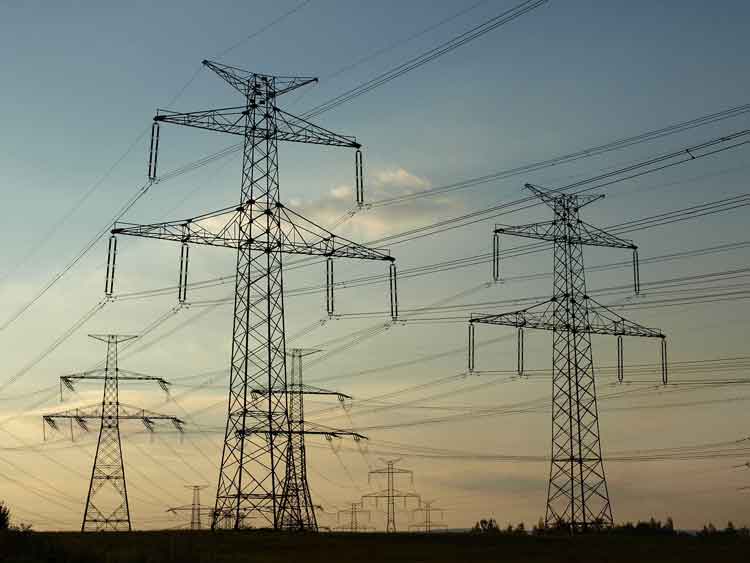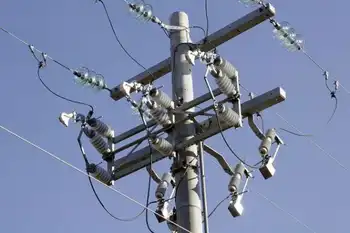Israelis dispute IranÂ’s nuclear program
By Toronto Star
Protective Relay Training - Basic
Our customized live online or in‑person group training can be delivered to your staff at your location.

- Live Online
- 12 hours Instructor-led
- Group Training Available
This is the declared view of the Israeli government, and it seems to be the nearly unanimous opinion of security experts here, following the release in Washington this week of a U.S. intelligence estimate that concludes Iran abandoned its pursuit of a nuclear bomb four years ago.
"Israel has its own security assessments, and experience has shown they are better than U.S. assessments," said Barry Rubin, editor and publisher of the Middle East Review of International Affairs. "It's not accurate to say Iran has stopped – this is the Israeli view."
Concerns about Tehran's increasing political influence in the region, coupled with fears about its nuclear ambitions, are perhaps this country's central foreign policy preoccupation and also underpinned last week's Middle East peace conference in Annapolis, Md.
The main issue on the agenda at that meeting was the revival of peace talks between Israelis and Palestinians following a seven-year hiatus, but both the U.S. and the Israeli governments are also seeking the formation of some sort of common front against Tehran, linking Israel and moderate Arab states, many of which feel threatened by the rise of Islamic fundamentalism in the region, fuelled in no small measure by Iran.
Even if Iran has discontinued the military side of its nuclear-development program, experts here note Tehran continues its uranium-enrichment efforts in violation of resolutions adopted by the United Nations Security Council.
If the Iranians were really serious about renouncing their pursuit of a nuclear bomb, they would abandon their uranium-enrichment efforts, argues Ephraim Asculai, a former top official at Israeli's Atomic Energy Commission.
"It's much cheaper to buy enriched uranium in the market," he said. "That puts the whole thing under international supervision. It's safer for the world, and it doesn't detract anything from national pride."
His conclusion, the same verdict reached by other experts here, is that Iran's abandonment of its nuclear-bomb ambitions is at best partial and temporary.
"What have they stopped? A nuclear weapon is fissile nuclear material in a bomb. The bomb is the simple part. The fissile material is the complex part, and they are continuing that."
But he and other Israeli experts interviewed recently by the Toronto Star conceded the U.S. intelligence estimate, whether right or wrong, will hinder ongoing efforts by Washington and the Israeli government to foster international support for harsher economic sanctions against Tehran.
"It is making the subject less urgent," said Shlomo Brom, former chief of strategic planning for the general staff of the Israeli Defence Forces.
"It will be more difficult to convince the various parties."
Iranian President Mahmoud Ahmadinejad is no friend of Israel. In the past, he has denied the Holocaust and mused the Jewish state should be "wiped off the map." His government supports Hamas and Hezbollah, two Islamist militant organizations opposed to Israel.
Israel is the only nuclear military power in the Middle East, although the government refuses as matter of policy to acknowledge its possession of nuclear weaponry.
Security experts interviewed here recently were divided on whether the recent U.S. intelligence estimate will help or hinder the search for peace between Palestinians and Israelis, a quest that is being renewed partly because Israel and several moderate Arab states want to close that 60-year-old rift in the political landscape in order to deal more effectively with their concerns about Iran's ascending power in the region.
"The motivation is still there," said Brom, referring to all parties' desire to solve the Israeli-Palestinian conflict.
"The question is, is this motivation enough to make real progress? I'm quite skeptical, with the (U.S.) report or without the report."
Israeli Foreign Minister Tzipi Livni was expected in Brussels today where she was to hold meetings with European Union officials aimed at building support for a tough, united stand against Iran.
Far from exonerating Iran, said Brom, the U.S. intelligence document is proof a nuclear-weapons program did exist in Iran, despite government denials then and now.
"This, they never admitted," he said. "It means they cheated."
He said Iran's apparent abandonment of its bomb-development scheme in 2003 coincided with that year's U.S.-led invasion of neighbouring Iraq, a military operation justified by claims the regime led by then-Iraqi president Saddam Hussein was developing weapons of mass destruction.
Those claims turned out to be wrong, but Iran must have been alarmed to see the consequences suffered by its neighbour on the mere suspicion of such violations, Brom argues.
"They panicked. They decided to freeze the program."
Like other Israeli security experts, however, he thinks the program could be revived at any time Tehran chooses, and therefore Israel should keep up its efforts aimed at forcing the Iranians to back down.











